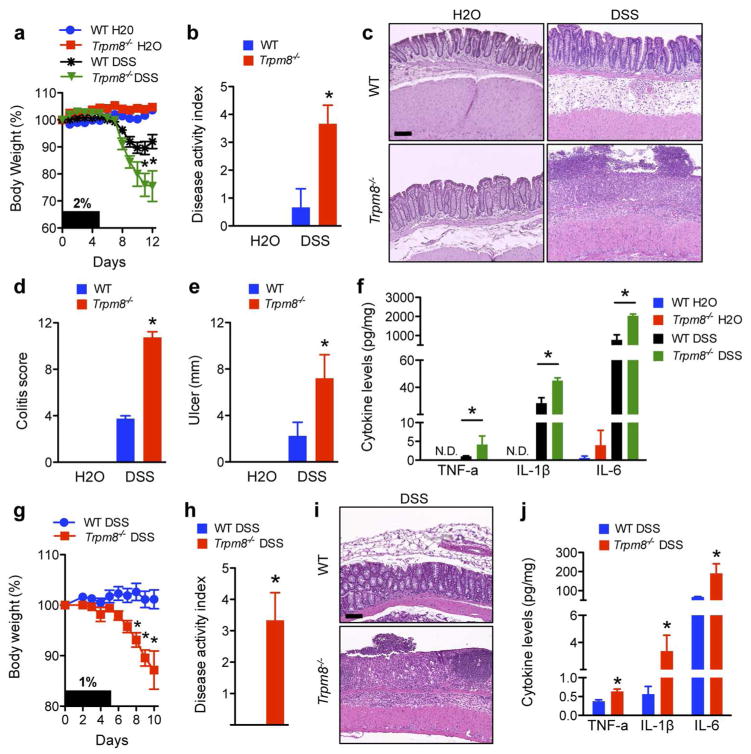Figure 1. TRPM8−/− mice are hypersusceptible to experimental colitis.
(a) Mice were treated with drinking water with or without DSS 2% (w/v) for 5 days and euthanized on day 12 for analysis. DSS-treated Trpm8−/− mice showed significantly increased body weight loss, and, (b) significantly increased DAI scores compared to WT mice. (c) Increased epithelial damage and inflammatory cell infiltration in the distal colon in DSS treated Trpm8−/− mice compared to WT mice. Representative cross-sections of the distal colons of WT and Trpm8−/− mice after water or DSS treatment, respectively (H&E staining). No differences were observed between both genotypes in water controls. (d) Significantly increased mean colitis score in DSS treated Trpm8−/− versus WT mice, as determined by histological analysis. (e) Significantly increased ulcerated area of colonic mucosa in DSS treated Trpm8−/− compared to WT mice. (f) Increased production of pro-inflammatory cytokines (TNF-α, IL-1β and IL-6) in colonic explants from DSS treated Trpm8−/− mice compared to WT mice. Of these inflammatory mediators, only IL-6 was detected in colon explant cultures taken from water treated (control) animals. (g) WT and Trpm8−/− mice were subjected to DSS 1% (DSSlow) for 5 days and euthanized on day 10. Only Trpm8−/− mice showed significant body weight loss and, (h) elevated DAI scores after DSSlow treatment. (i) Trpm8−/− but not WT mice showed mucosal damage and inflammatory activity after DSSlow treatment. (j) Significantly increased pro-inflammatory cytokine production by colonic explants from Trpm8−/− mice. Data are mean ± SEM and representative of 3 independent experiments. *P<0.05 by 2-way ANOVA (a, g) or Mann-Whitney (b, d–f, h, j). Scale bars = 100 μm (c, i).

